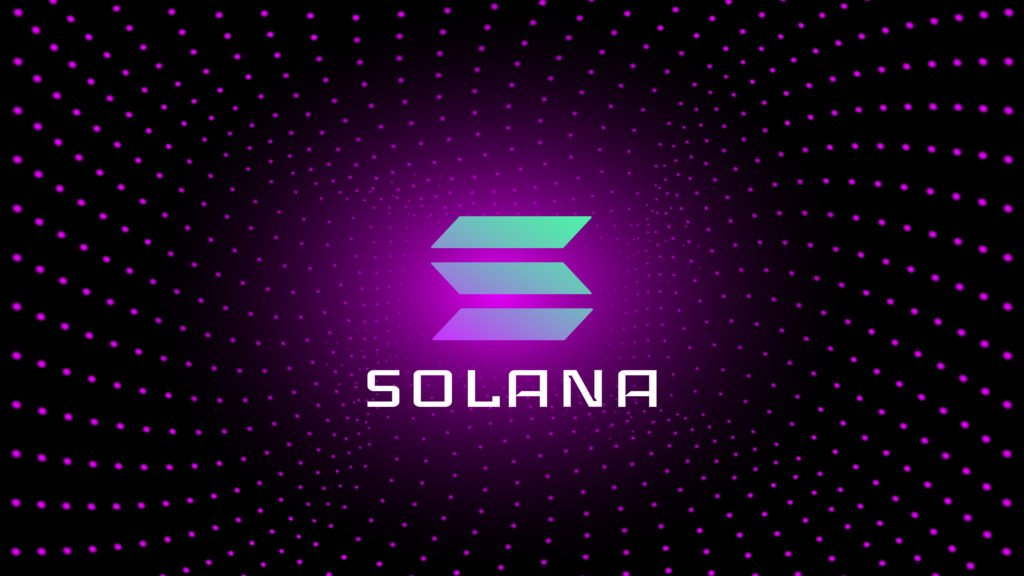Solana Could be the Leader in the Next Crypto Boom
30.06.2024 21:00 2 min. read Alexander Stefanov
Raul Pal, CEO of Real Vision and a macroeconomic expert, expects Solana (SOL) to be at the forefront of the upcoming expansion of the digital asset market.
Pal, a former Goldman Sachs executive, recently discussed how the cryptocurrency market is approaching what he describes as a “banana zone” – a phase of continued growth.
Pal predicts that Solana, a prominent smart contract platform, will lead the market out of its current stagnation into a new era of bullish momentum.
He believes the banana zone is approaching, and believes Solana will be at the forefront of this shift, recalling that he has mentioned a similar trajectory before. He said it doesn’t happen overnight, but when it does, the possibilities can be transformative.
He also highlighted two specific factors that have increased his optimism about SOL:
Two key developments with Solana particularly caught my attention, in addition to the active developer community around it. The first is NFT compression, which opens up new opportunities for NFTs, such as ticketing and derivatives, by enabling large-scale deployment of irreplaceable token technology at minimal cost.
The second factor is Firedancer, which was a big influence on my decision to concentrate my investment in Solana. Firedancer is an upcoming third-party validation technology that aims to increase the speed of transactions, scalability and overall efficiency of Solana. This led me to allocate 90% of my crypto investments – and thus my entire liquid net worth – to Solana. While this may seem risky to some, I believe that focusing on one asset is a sound strategy when dealing with correlated market conditions.
-
1
Ethereum Overtakes Bitcoin in Retail FOMO as Traders Shift Focus to Altcoins
17.07.2025 8:05 2 min. read -
2
Fartcoin Price Prediction: FARTCOIN Could Rise to $2.74 After Major Breakout
17.07.2025 16:01 3 min. read -
3
Binance to Launch 2 New Contracts with 50x Leverage: Everything You Need to Know
10.07.2025 12:00 2 min. read -
4
Standard Chartered Becomes First Global Bank to Launch Bitcoin and Ethereum Spot Trading
15.07.2025 11:00 1 min. read -
5
Will Ethereum and Solana Benefit from Wall Street’s Shift?
09.07.2025 19:00 2 min. read
Ethereum’s On-chain Volume Surges 288% — Is a Breakout Next?
Ethereum’s network just witnessed a seismic shift in activity.
Binance Launches New Airdrop and Trading Competition
Binance has officially launched a new airdrop event for Verasity (VRA) through its Binance Alpha platform, giving eligible users the chance to claim free tokens and compete for a massive prize pool.
XRP: What’s the Next Target After Bullish Breakout?
XRP has emerged from a months-long consolidation with renewed bullish momentum, reigniting trader interest in its next major price target.
Bitcoin Dominance Holds Firm as Altcoins Show Early Signs of Rotation
Despite recent gains across select DeFi and RWA tokens, Bitcoin continues to dominate the crypto landscape, with the Altcoin Season Index sitting at 43/100, according to today’s CoinMarketCap data.
-
1
Ethereum Overtakes Bitcoin in Retail FOMO as Traders Shift Focus to Altcoins
17.07.2025 8:05 2 min. read -
2
Fartcoin Price Prediction: FARTCOIN Could Rise to $2.74 After Major Breakout
17.07.2025 16:01 3 min. read -
3
Binance to Launch 2 New Contracts with 50x Leverage: Everything You Need to Know
10.07.2025 12:00 2 min. read -
4
Standard Chartered Becomes First Global Bank to Launch Bitcoin and Ethereum Spot Trading
15.07.2025 11:00 1 min. read -
5
Will Ethereum and Solana Benefit from Wall Street’s Shift?
09.07.2025 19:00 2 min. read

